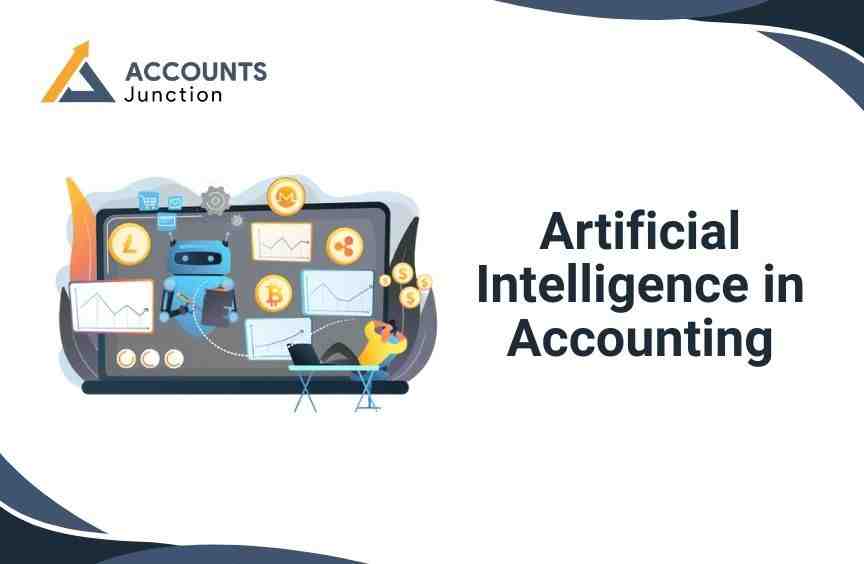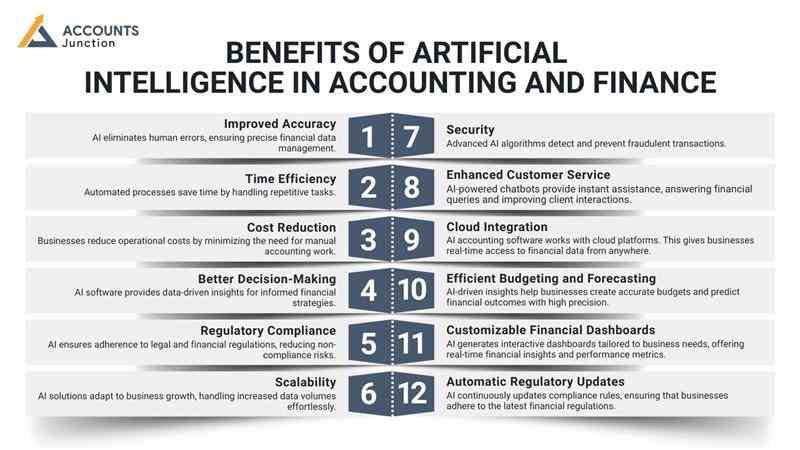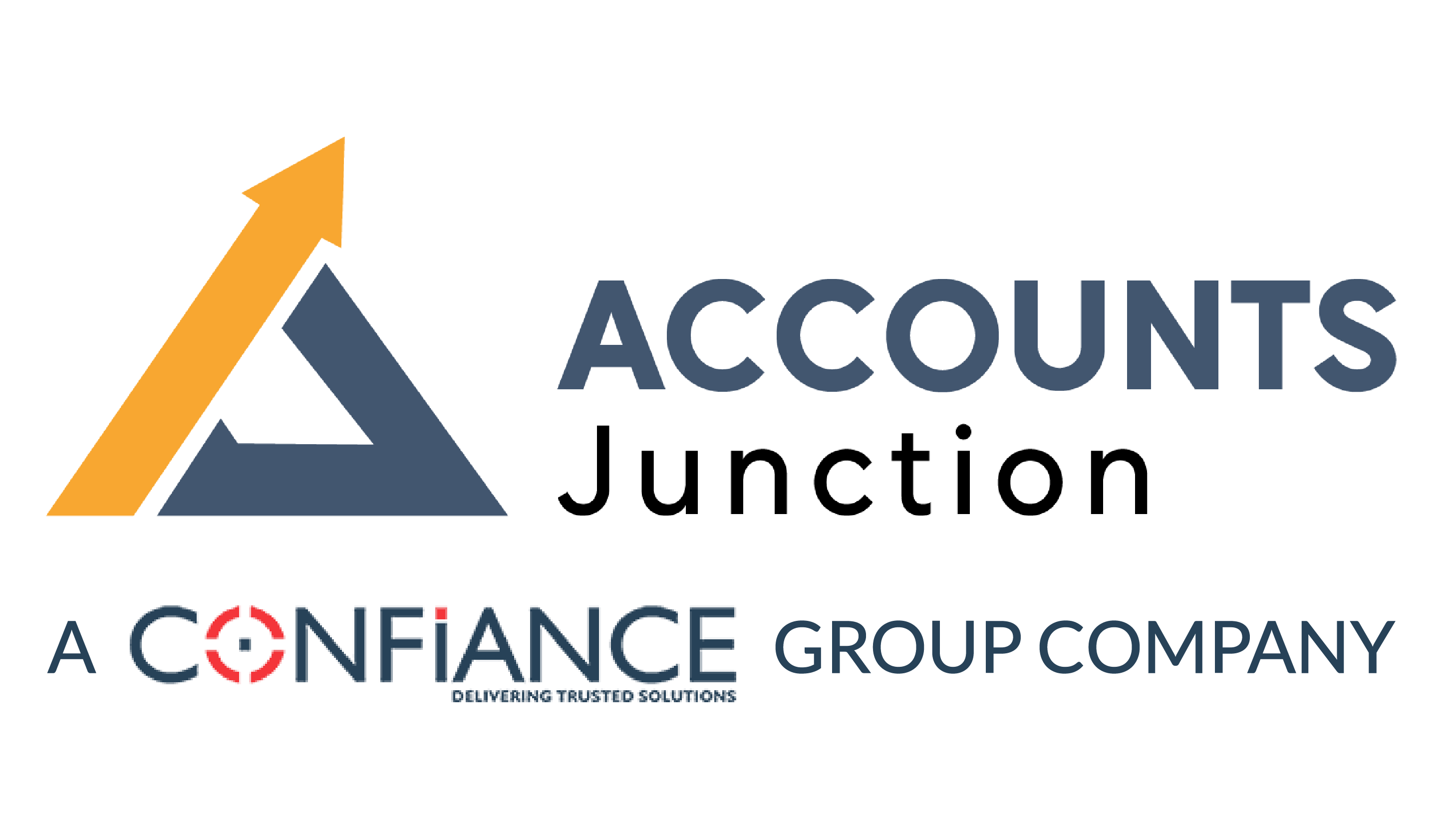
Artificial Intelligence in Accounting
The accounting industry is undergoing a significant transformation with the integration of artificial intelligence. Artificial Intelligence in accounting streamline financial management by automating complex tasks, reducing manual errors, and enhancing decision-making. As businesses generate vast amounts of financial data, AI accounting software efficiently processes and analyzes information, allowing accountants to focus on strategic functions.
AI accounting software assists in automating tasks such as data entry, reconciliation, invoice processing, and tax calculations. It also detects fraud patterns, ensuring financial security. Machine learning algorithms improve over time, making AI-based solutions more efficient in managing financial transactions and compliance requirements.
Understanding AI Accounting Software: Features and Capabilities
AI accounting software comes with various features that optimize accounting processes. Some of the key functionalities include:
- Automated Data Entry: AI tools can pull data from receipts, invoices, and financial statements. This removes the need for manual input.
- Expense and Income Tracking: Businesses can monitor financial transactions in real time, ensuring accuracy and efficiency.
- Bank Reconciliation: AI software reconciles bank statements with financial records, identifying discrepancies and reducing errors.
- Financial Reporting: AI accounting software generates comprehensive reports, providing insights for better decision-making.
- Automated Invoice Processing: AI streamlines invoice creation, approval, and payment tracking, reducing manual workload and improving cash flow management.
- Multi-Currency Support: AI-powered accounting software handles financial transactions in multiple currencies, ensuring accurate conversions and compliance with international accounting standards.
- Payroll Automation: AI integrates payroll processing, ensuring timely salary disbursement, tax deductions, and benefits calculations.
Capabilities of AI Accounting Software
Beyond basic features, Artificial Intelligence in accounting can be experienced with software offering advanced capabilities like:
- Predictive Analytics: AI tools analyze historical data to predict future trends, helping businesses plan their finances effectively.
- Tax Compliance: Automated tax calculations and compliance tracking reduce the risk of penalties and ensure adherence to regulations.
- Fraud Detection: AI-driven algorithms identify unusual transaction patterns, reducing fraudulent activities.
- Natural Language Processing (NLP) helps with financial insights. AI chatbots and virtual assistants give real-time financial information. They also answer questions about accounting.
- Data Reconciliation Across Platforms: AI synchronizes financial data across various accounting and enterprise resource planning (ERP) systems, ensuring accuracy and consistency.
- AI-Powered Auditing: AI conducts automated audits by detecting anomalies and ensuring compliance with financial regulations, reducing the burden on human auditors.
These features and capabilities make AI accounting software required for businesses seeking efficiency and accuracy in financial management.
Benefits of Artificial Intelligence in Accounting and Finance
Artificial intelligence is redefining accounting by offering numerous benefits to businesses and financial professionals. Implementing Artificial Intelligence in accounting offers numerous advantages:
- Improved Accuracy: AI eliminates human errors, ensuring precise financial data management.
- Time Efficiency: Automated processes save time by handling repetitive tasks.
- Cost Reduction: Businesses reduce operational costs by minimizing the need for manual accounting work.
- Better Decision-Making: AI software provides data-driven insights for informed financial strategies.
- Regulatory Compliance: AI ensures adherence to legal and financial regulations, reducing non-compliance risks.
- Scalability: AI solutions adapt to business growth, handling increased data volumes effortlessly.
- Security: Advanced AI algorithms detect and prevent fraudulent transactions.
- Enhanced Customer Service: AI-powered chatbots provide instant assistance, answering financial queries and improving client interactions.
- Cloud Integration: AI accounting software works with cloud platforms. This gives businesses real-time access to financial data from anywhere.
- Efficient Budgeting and Forecasting: AI-driven insights help businesses create accurate budgets and predict financial outcomes with high precision.
- Customizable Financial Dashboards: AI generates interactive dashboards tailored to business needs, offering real-time financial insights and performance metrics.
- Automatic Regulatory Updates: AI continuously updates compliance rules, ensuring that businesses adhere to the latest financial regulations.
By integrating Artificial Intelligence in accounting, businesses can enhance productivity and gain superiority.
Common Challenges When Using Artificial Intelligence in Accounting
Data Quality Issues
- AI can only be as smart as the data it reads. Poor data or missing records may lead to inaccurate outcomes. Businesses might need to clean and prepare their data before the AI can perform well.
High Initial Cost
- AI tools may save time later, but the setup and training may cost more at the start. Smaller firms might hesitate before taking this step.
Security and Privacy Risks
- With AI systems handling sensitive data, strong protection is vital. Without secure systems, private financial records may face risks of leaks or misuse.
How AI Accounting Software Transforms Business Operations?
AI accounting software significantly improves business operations by automating financial processes and providing actionable insights. Some of the transformative impacts include:
- Automating Repetitive Tasks
AI software streamlines bookkeeping, payroll processing, and invoice management, reducing manual workload. - Enhancing Decision-Making
AI-driven analytics help businesses identify trends, optimize cash flow, and make strategic financial decisions. - Strengthening Security
AI detects deviations in transactions, reducing the risk of fraud and ensuring financial integrity. - Enabling Real-Time Financial Monitoring
Businesses can access up-to-date financial reports, allowing them to manage expenses and revenues efficiently. - Facilitating Compliance and Audits
AI accounting software ensures regulatory compliance, making audits smoother and hassle-free.
By utilizing AI technology, businesses can streamline operations, enhance financial accuracy, and improve overall efficiency.
Get AI-powered bookkeeping with Accounts Junction
Account Junction offers AI-powered bookkeeping services to simplify financial management. Our AI software solutions automate bookkeeping tasks, ensuring accuracy and efficiency. We provide comprehensive accounting services, helping businesses optimize financial operations with advanced AI technology.
With AI-driven bookkeeping, businesses can focus on growth while we handle financial records with precision. Our AI-powered solutions enhance data accuracy, reduce errors, and provide real-time financial insights. Whether it's tax compliance, bank reconciliation, or financial reporting, Account Junction delivers superior AI-enabled accounting services.
AI accounting software is transforming financial management by automating tasks, enhancing accuracy, and providing real-time insights. Businesses can streamline workflows, improve security, and ensure compliance with evolving regulations. Artificial Intelligence in accounting reduces errors, cuts costs, and supports scalable growth.
Accounts Junction provides AI-powered bookkeeping services, helping businesses optimize financial operations with advanced technology. Using AI software ensures efficiency, accuracy, and a strategic advantage in the modern business world.
FAQs
1. What does AI really do in accounting?
- AI reads and processes financial data, automates tasks, and gives insights that may help in decision-making.
2. Can AI fully replace accountants?
- Not quite. It can handle repetitive work, but human skill and judgment still guide complex financial choices.
3. How does AI help in bookkeeping?
- It may scan receipts, update ledgers, and match transactions automatically, saving hours of manual work.
4. Does AI accounting need coding knowledge?
- No. Most AI tools come with easy dashboards that anyone can learn with simple training.
5. Is AI accounting safe for private financial data?
- It can be safe when used with strong encryption and access control, but data safety depends on how systems are set up.
6. Can small businesses afford AI accounting software?
- Many modern AI tools offer flexible pricing, so even small firms may start with basic plans.
7. What happens if AI makes a mistake?
- Human checks should catch errors. AI may learn from them and improve over time.
8. Does AI help in making business forecasts?
- Yes. It can study past data and show patterns that hint at possible future outcomes.
9. How does AI improve audit processes?
- AI may scan thousands of records faster than people can, highlighting areas that need review.
10. Can AI handle multiple currencies and tax laws?
- Many advanced tools can manage global accounting, but updates may be needed for changing rules.
11. How long does it take to set up AI accounting software?
- It may take a few days or weeks, depending on the size of the business and the data to import.
12. Does AI accounting save money in the long run?
- It often can. Reduced errors and faster reports may lower operating costs over time.
13. Is AI accounting useful for freelancers?
- Yes, even single professionals can use it to track income, expenses, and taxes easily.
14. What skills do accountants need to use AI tools?
- Basic digital literacy and an open mind to learn new systems are usually enough.
15. Does AI work offline or only online?
- Most AI systems run on the cloud, but some features may work offline too.
16. Can AI detect fake invoices or fraud?
- Yes, it may flag transactions that look suspicious or unusual.
17. Will AI change how financial reports are made?
- It likely will. Reports may come faster, clearer, and with real-time updates.
18. Can AI software work with Excel or ERP tools?
- Most do. They can connect with existing systems for smooth data flow.
19. What are signs that a business needs AI accounting?
- If the team spends too much time on manual tasks or often misses data, AI may help.
20. How does AI support long-term business planning?
- By showing patterns and forecasts, AI may guide budget plans, cost control, and investment decisions.

